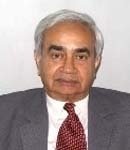Indo-US Strategic Cooperation: Constraints, Limitations
13 Jul, 2005 · 1788
P R Chari elucidates the nuances of the Indo-US defence agreement and the constraints it would place on India's strategic interests
The framework agreement envisaging a defence relationship between India and the United States, signed in Washington by Pranab Mukherjee and Donald Rumsfeld on 28 June, 2005, has started unravelling. This is unsurprising since it did not appreciate the political realities prevailing in India.
In theory, defence relations between nations can have six aspects. They include intellectual exchanges; strategic dialogue at military and political levels; military training and joint training exercises; collaboration in R&D; transfer of weapon systems; and, transfer of military technology. The framework agreement included all these aspects. Many provisions, indeed, seemed designed to serve American interests like getting India to join the multinational operations in Iraq, enter the Proliferation Security Initiative, expand missile defence cooperation and enmesh the defence procurement and production establishments of the two countries. These are pure anathema to the Left parties, and they have gone ballistic.
Since the Congress-led United Progressive Alliance is dependent on the Left parties for political survival, the failure to sound them before entering these arrangements has ensured that the framework agreement has become the centre of a political storm. The lesson is that domestic political compulsions can finesse foreign policy objectives. But this controversy will cast a long shadow over Manmohan Singh's forthcoming visit to the United States.
In theory, again, defence cooperation should be viewed within a strategic framework. Seen in this perspective the differences between the Indian and American strategic objectives are evident. India has an obvious interest in enhancing cooperation with the world's sole superpower, which according to Condoleeza Rice, wants India to become a major world power. For achieving this laudable goal, India seeks American support to join the Security Council as a permanent member, but also to acquire high technology from the United States and its G-8 partners, including military and nuclear technology. In obverse, the American interest in enhancing Indo-US ties is two-fold. It hopes that India would join the coalition forces to help extricate it from the quagmire of Iraq. India is one of the very few nations in the world that has the trained manpower and expertise to help out. US interest also lies in encouraging India to balance China to establish a new balance of power in Asia that would better serve American interests. These mutual expectations bear closer examination.
In the harsh world of realpolitik there is no quid without a pro. There is little reason to believe that the United States will provide India with high technology without the latter taking suitable steps towards providing, not advice or a contribution towards Iraq's development, but "boots on the ground, " meaning sending Indian troops to Iraq. India will be unable to do this for major domestic reasons. The Congress, then out of power, had vociferously opposed the BJP-led NDA government's wavering on this issue; it would consequently be politically suicidal for it to promote this enterprise now when Iraq is a mess.
Similarly, it would not serve India's national interests to adopt an adversarial posture vis-à-vis China when Sino-Indian relations are launched on a trajectory presaging greater cordiality. Expressed in larger geo-strategic terms India needs to keep a foot in the Sino-Russian camp, which is steadily getting stronger, primarily drawn together to oppose the American incursions into Central Asia. The new Great Game, of course, is about fossil fuels. In a multilateral world, moreover, it is obviously in India's interests to multiply and diversify its relationships. Binding itself to the sole superpower would be unwise, noting its penchant for unilateralism in a world that requires greater cooperation between nations to address its problems. Clearly, it would not serve US interests to enlarge the permanent membership of the Security Council to dilute its own powers and control over the international agenda. Ironically, the Chinese think similarly, and do not want any other Asian country, either Japan or India, to dilute its position in the Security Council. A Sino-American identity of interests obtains to keep out the aspirants to permanent membership of the Security Council, which India must realize represents the current reality.
Coming to Pakistan - the albatross hanging around India's neck - the US is unlikely to seriously consider India's complaints of its sponsoring cross-border terrorism into Kashmir, so long as Pakistan remains vital to the US "war against terrorism" being waged in Afghanistan. There are ominous reports now of Pakistan refurbishing its militant training camps in NWFP. For India, this issue is of overwhelming significance, colouring other efforts to consolidate Indo-US relations. This combination of domestic compulsions and American strategic interests will dictate the way both countries will underpin Manmohan Singh's forthcoming visit to the United States. The less demands he makes of Washington, the less the possibility that they would be clothed in polite diplomatese to signify "No go."


